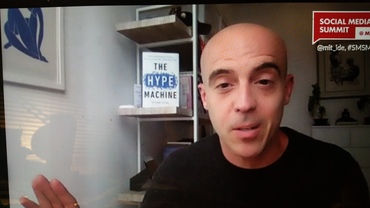The tonsils of the Internet
 Last week the US Supreme Court decided the ten-year-old Google v. Oracle copyright case. Unlike anyone in Jarndyce v. Jarndyce, which bankrupted all concerned, Google will benefit financially, and in other ways so will the rest of us.
Last week the US Supreme Court decided the ten-year-old Google v. Oracle copyright case. Unlike anyone in Jarndyce v. Jarndyce, which bankrupted all concerned, Google will benefit financially, and in other ways so will the rest of us.
Essentially, the case revolved around whether Google violated Oracle's copyright by copying about 11,500 lines of the software code (out of millions) that makes up the Java platform, part of the application programming interface. Google claimed fair use. Oracle disagreed.
Tangentially: Oracle owns Java because in 2010 it bought its developer, Sun Microsystems, which open-sourced the software in 2006. Google bought Android in 2005; it, too, is open source. If the antitrust authorities had blocked the Oracle acquisition, which they did consider, there would have been no case.
The history of disputes over copying and interoperability case goes back to the 1996 case Lotus v. Borland, in which Borland successfully argued that copying the way Lotus organized its menus was copying function, not expression. By opening the way for software programs to copy functional elements (like menus and shortcut keys), the Borland case was hugely important. It paved the way for industry-wide interface standards and thereby improved overall usability and made it easier for users to switch from one program to another if they wanted to. This decision, similarly, should enable innovation in the wider market for apps and services.
Also last week, the US Congress conducted both the latest in the series of antitrust hearings and interrogated Lina Khan, who has been nominated for a position at the Federal Trade Commission. Biden's decision to appoint her, as well as Tim Wu to the National Economic Council, has been taken as a sign of increasing seriousness about reining in Big Tech.
The antitrust hearing focused on the tollbooths known as app stores; in his opening testimony, Mark Cooper, director of research at the Consumer Federations of America, noted that the practices described by the chair, Senator Amy Klobuchar (D-MN) were all illegal in the Microsoft case, which was decided in 1998. A few minutes later, Horacio Gutierrez, Spotify's head of global affairs and chief legal officer, noted that "even" Microsoft never demanded a 30% commission from software developers to run on its platform".
Watching this brought home the extent to which the mobile web, with its culture of walled gardens and network operator control, has overwhelmed the open web we Old Net Curmudgeons are so nostalgic about. "They have taken the Internet and moved it into the app stores", Jared Sine told the committee, and that's exactly right. Opening the Internet back up requires opening up the app stores. Otherwise, the mobile web will be little different than CompuServe, circa 1991.
BuzzFeed technology reporter Ryan Mac posted on Twitter the anonymous account of a just-quit Accenture employee's account of their two and a half years as a content analyst for Facebook. The main points: the work is a constant stream of trauma; there are insufficient breaks and mental health support; the NDAs they are forced to sign block them from turning to family and friends for help; and they need the chance to move around to other jobs for longer periods of respite. "We are the tonsils of the Internet," they wrote. Medically, we now know that the tonsils that doctors used to cheerfully remove play an important role in immune system response. Human moderation is essential if you want online spaces to be tolerably civil; machines simply aren't good enough, and likely never will be, and abuse appears to be endemic in online spaces above a certain size. But just as the exhausted health workers who have helped so many people survive this pandemic should be viewed as a rare and precious resource instead of interchangeable parts whose distress the anti-lockdown, no-mask crowd are willing to overlook, the janitors of the worst and most unpleasant parts of the Internet need to be treated with appropriate care.
The power differential, the geographic spread, their arms-length subcontractor status, and the technology companies' apparent lack of interest combine to make that difficult. Exhibit B: Protocol reports that contract workers in Google's data centers are required to leave the company for six months every two years and reapply for their jobs, apparently just so they won't gain the rights of permanent employees.
In hopes of change, many were watching the Bessemer, Alabama Amazon warehouse workers' vote on unionizing. Now, the results are in: 1,798 to 738 against. You would think that one thing that could potentially help these underpaid, traumatized content moderators - as well as the drivers, warehouse workers, and others who are kept at second-class arm's length from the technology companies who so diligently ensure they don't become full employees - is a union. Because of the potential impact on the industry at large, many were watching closely, both the organizating efforts and Amazon's drive to oppose them.
Nonetheless, this isn't over. Moves toward unionizing have been growing for years in pockets all over the technology industry, and eventually it will be inescapable. We're used to thinking about technology companies' power in terms of industry consolidating and software licensing; workers are the ones who most directly feel the effects.
Illustrations: The chancellor (Ian Richardson), announcing the end of Jarndyce and Jarndyce in the BBC's 2005 adaptation of Bleak House.
Wendy M. Grossman is the 2013 winner of the Enigma Award. Her Web site has an extensive archive of her books, articles, and music, and an archive of earlier columns in this series. Stories about the border wars between cyberspace and real life are posted occasionally during the week at the net.wars Pinboard - or follow on Twitter.



